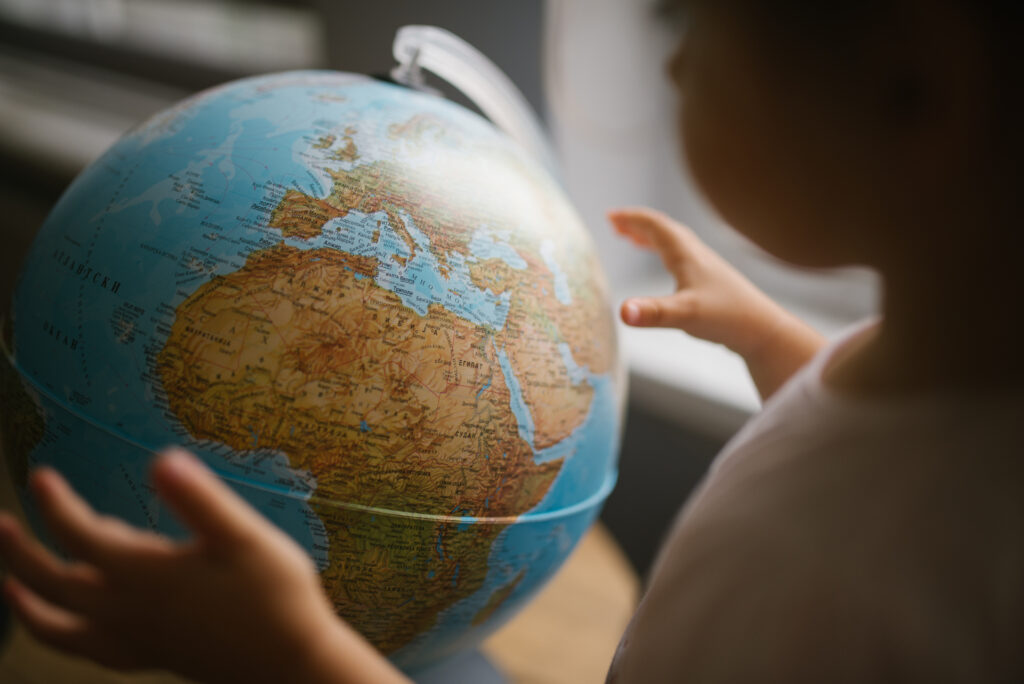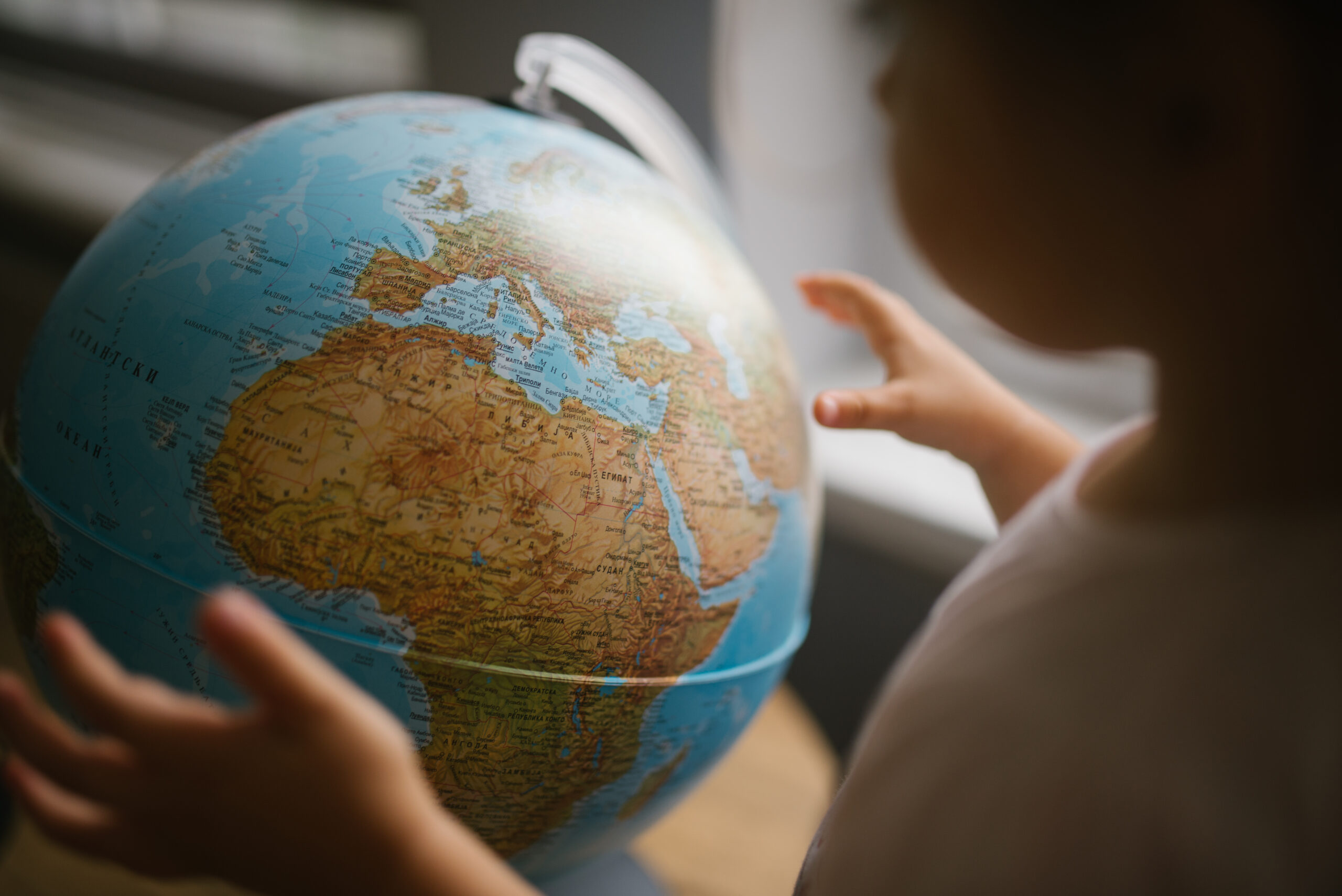


Forget their policies for a moment, and consider how two politicians’ lives foreshadow our ecological future.
By Carter Dillard, Independent Media Institute
4 min read
U.S. Vice President Kamala Harris does not have any biological children and grew up middle-class. Meanwhile, Utah Senator Mitt Romney, a Mormon with five kids, was born into wealth and has substantially increased it for his family.
Their lives prefigure very different futures for the country and its children.
If those in the U.S. who are privileged enough to be able to follow Romney’s example of having unearned family privileges and a large family choose to do so, then the entire country will eventually arrive at an ecologically degraded and unsustainable future, as well as a crowded political system, where the day-to-day reality of life is defined by massive inequity driven by family wealth. The increase in population, which is “rising unevenly,” is one of the contributing factors leading to an “unprecedented” decline in nature that is “accelerating” species extinction rates, according to a report by the Intergovernmental Science-Policy Platform on Biodiversity and Ecosystem Services. The continued and unchecked growth of the human population might exacerbate this situation further.
Meanwhile, if we follow Harris’ example, and especially if she uses her earned wealth to further social justice in her current position, we arrive at a more sustainable future and an optimal world population, where every vote counts, and privilege is earned rather than inherited.
Which of these two futures do parents want for their children?
Parents have a right to protect their children’s future by not following the example and choices of people like Mitt Romney, whose life is like a microcosm of what it means to exploit the environment and capitalize on one’s birth position.
In March, the Senate passed legislation, urged on by Romney, that while appearing to lift children out of poverty, is probably better characterized as an attempt to nudge people to have more kids. The legislation does nothing to truly eliminate child poverty by moving toward recognizing every child’s right to a fair start in life and does not help to promote smaller and more sustainable families amid the climate crisis or provide solutions for preventing future population-driven pandemics. The legislation also does nothing to address fundamental problems that will continue to grow with the push for more babies. It does nothing to prevent child abuse and the horrific acts of torture some children continue to face at the hands of their caregivers. It does nothing to restore the natural world that previous generations enjoyed and that is likely to be stolen from future generations if nothing is done to remedy the situation.
What can people in the U.S. do to fight for their rights to a natural and democratic future when even a more progressive Congress ignores them? While many have lauded President Joe Biden’s plans as a modern-day New Deal, there is also a need to envision a more physical and intergenerational revision of the social contract where the people of this country can prioritize children’s right to an ecologically and socially fair start in life simply because future children represent the constant restarting of the agreement. The rights of the children, in this sense, override all competing rights, including the rights of the uber-wealthy—like those paying millions to be space tourists—to hoard resources that could instead be used for improving family planning.
This change can come from the grassroots, not just by telling political leaders what’s important to them, but also by engaging in their communities to spread information about the connection between ensuring a better future for children in terms of climate, democracy, and other opportunities. Given what’s at stake, it would be immoral not to recreate the social contract to make it fair from the start and move the country as a whole a bit more toward making choices that are represented by Harris rather than Romney.
Regardless of the action that people take and the example that they choose to follow, between Harris and Romney, they now have starkly different examples of the kinds of lives children can lead, and what they represent for the future of humanity at large.
###
Carter Dillard is the policy adviser for the Fair Start Movement. He served as an Honors Program attorney at the U.S. Department of Justice and served with a national security law agency before developing a comprehensive account of reforming family planning for the Yale Human Rights and Development Law Journal.
Take action…
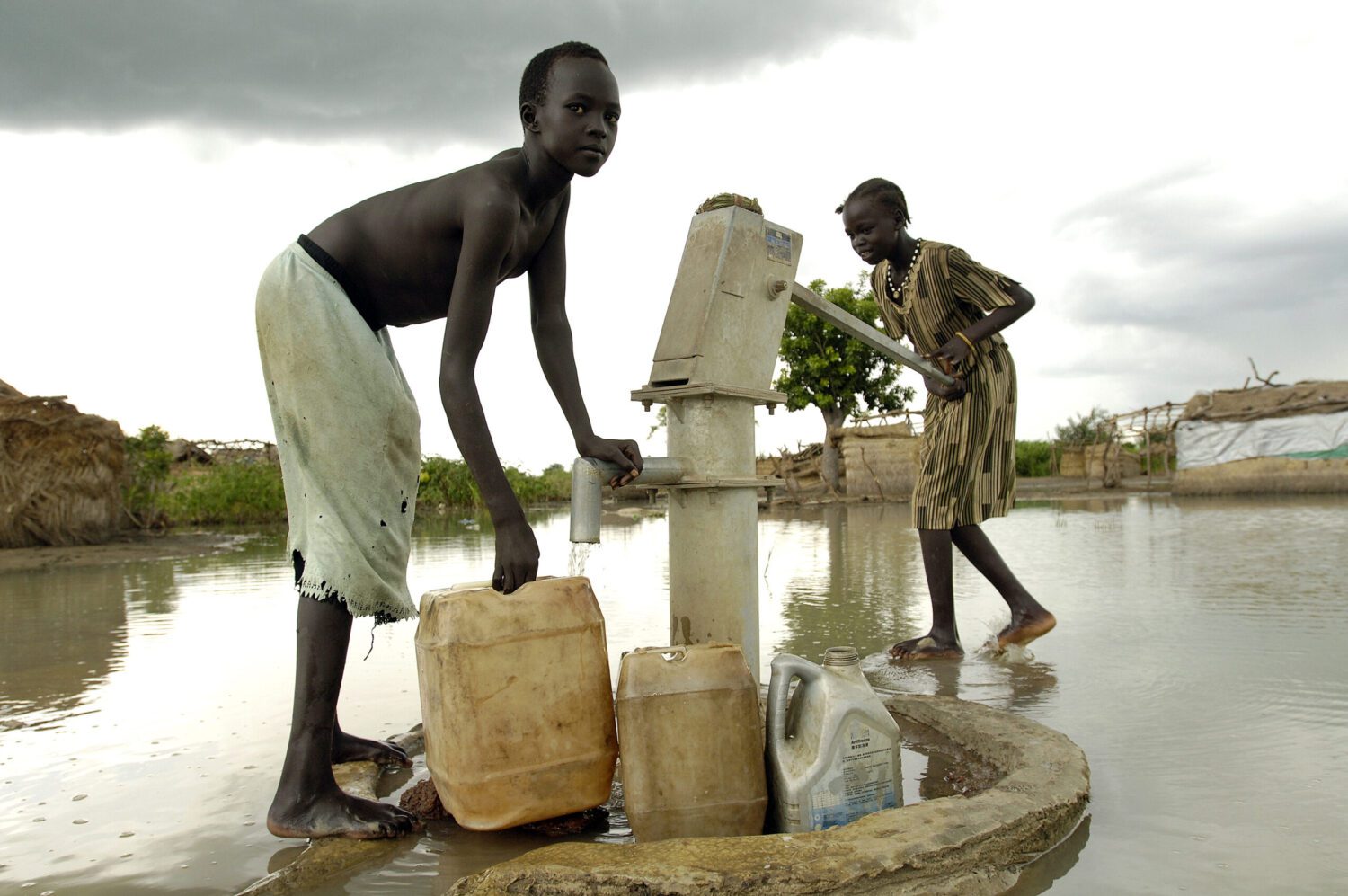
Terre des Hommes: “Every child has the right to a healthy environment. But, this is severely threatened. The global environmental crisis, climate change, extinction of species, plastic waste and water and air pollution massively endanger the chances of survival, especially of children. Every year 1.7 million children die before their fifth birthday from drinking contaminated water or breathing polluted air. About 800 million children are contaminated with lead from the environment. Extreme drought threatens the lives of 160 million children. Hunger and malnutrition are the result. The home[s] of over 500 million children … [are] in danger of being flooded.
“Environmental destruction kills children and their hope for a future worth living. That is why millions of children and young people all over the world are taking to the streets for stronger climate and environmental policies and a more sustainable way of life. It is time to listen and take children’s voices seriously. We need a right recognized globally by the United Nations that holds all governments and all social actors accountable to protecting the children of today and tomorrow from environmental hazards. A healthy environment must be recognized as a human right.”
Urge the United Nations Committee on the Rights of the Child and the countries that signed onto its Convention on the Rights of the Child to secure the right of children to a healthy environment.
Cause for concern…
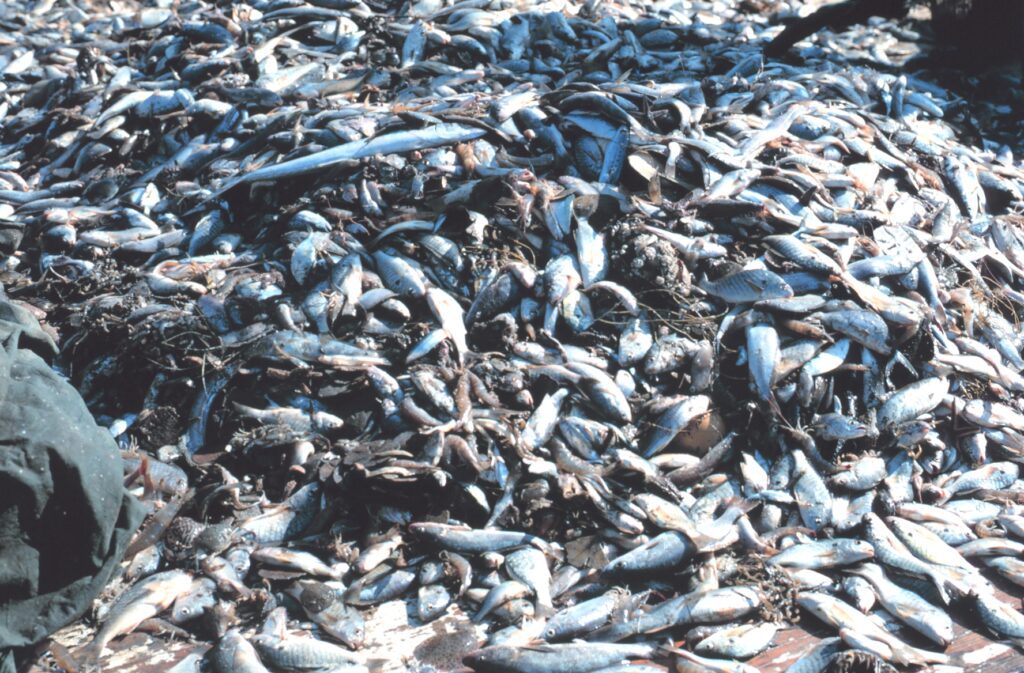
Industrial fishing has broken a fundamental oceanic law
“Life in the ocean [follows] a simple mathematical rule: The abundance of an organism is closely linked to its body size. To put it another way, the smaller the organism, the more of them you find in the ocean. Krill are a billion times smaller than tuna, for example, but they are also a billion times more abundant,” reports Matt Reynolds for WIRED. “The Sheldon spectrum, as it became known, has been observed in plankton, fish, and in freshwater ecosystems, too… But now humans seem to have broken this fundamental law of the ocean. In a November paper for the journal Science Advances, [Eric Galbraith, a professor of earth and planetary sciences at McGill University in Montreal,] and his colleagues show that the Sheldon spectrum no longer holds true for larger marine creatures. Thanks to industrial fishing, the total ocean biomass of larger fish and marine mammals is much lower than it should be if the Sheldon spectrum was still in effect.”
Round of applause…

The future of sustainable fashion: mushrooms?
Mushrooms are taking the fashion world by storm, in the form of one of the latest sustainable and cruelty-free alternatives to animal-based leather. Well-known global clothing brands like Adidas, Lululemon, Hermès and Stella McCartney are experimenting with a new fabric dubbed Mylo, which is made from mycelium, the fibrous root structure of mushrooms. “If you think about leather, it’s about a two-year or three-year process, from end to end, from a cow being born to a product being made,” said Dan Widmaier, the CEO of California-based Bolt Threads, the materials solutions firm that has developed the animal-free fabric. “With Mylo, it’s about eight weeks.”
Watch a short video about Mylo.
ICYMI…
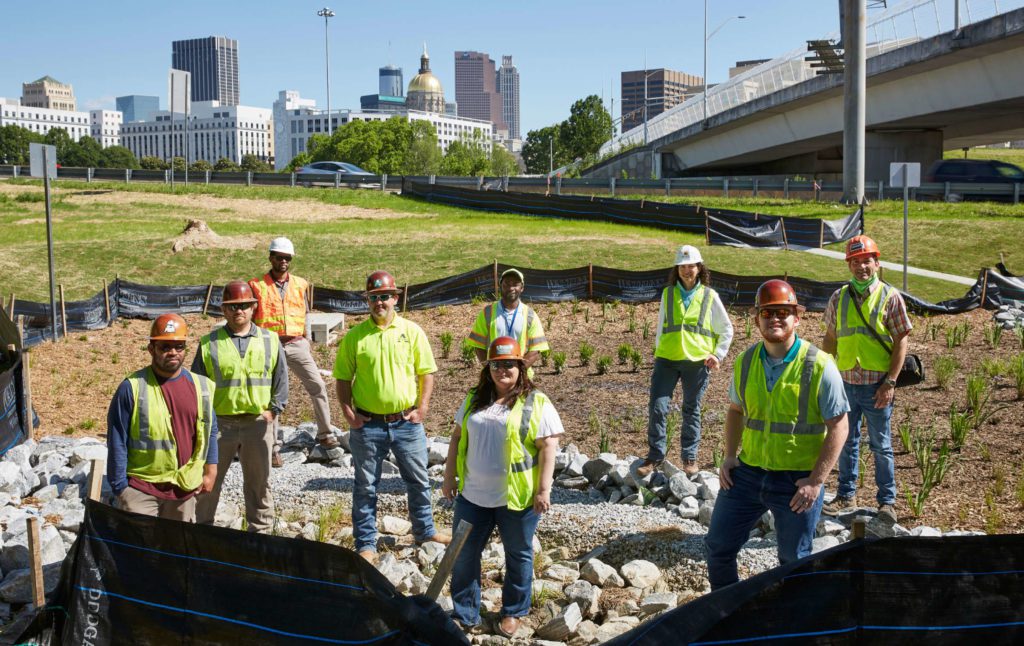
What links all of Biden’s top priorities? Healthy rivers
“Each one of the 23,000-75,000 sewer overflows that occur each year releases up to 10 billion gallons of toxic sewageevery day into rivers and streams. This disproportionately impacts communities of color, because, for generations, Black, Indigenous, Latinx and other people of color have been relegated to live in flood-prone areas and in neighborhoods that have been intentionally burdened with a lack of development that degrades people’s health and quality of life. In some communities of color, incessant flooding due to stormwater surges or combined sewer overflows has gone unmitigated for decades. We have historically treated people as separate from rivers and water. We can’t do that anymore. Every voice—particularly those of people most directly impacted—must have a loudspeaker and be included in decision-making at the highest levels.”
—EFL contributor Katy Neusteter, “Restoring Our Water Systems Should Be Top Priority for Biden Administration,” (Truthout, January 19, 2021)
Parting thought…
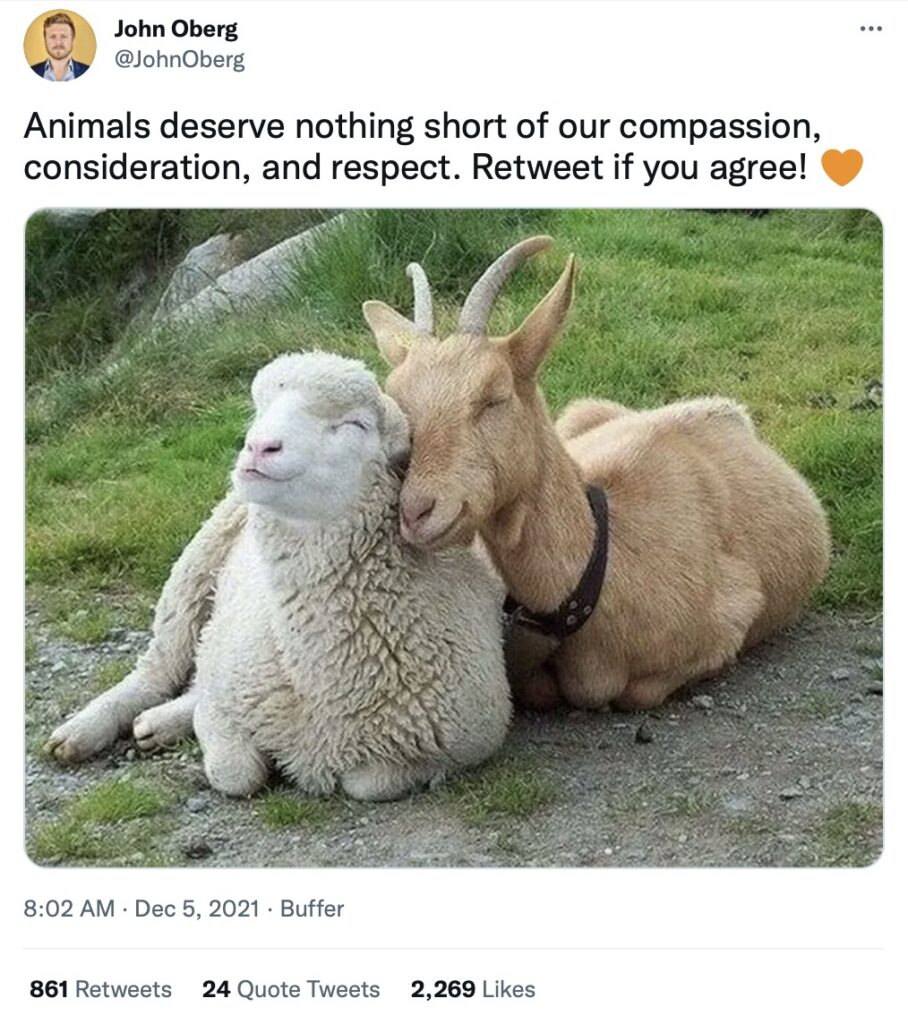
(Screenshot via @JohnOberg/Twitter)
Earth | Food | Life (EFL) explores the critical and often interconnected issues facing the climate/environment, food/agriculture and nature/animal rights, and champions action; specifically, how responsible citizens, voters and consumers can help put society on an ethical path of sustainability that respects the rights of all species who call this planet home. EFL emphasizes the idea that everything is connected, so every decision matters.
Click here to support the work of EFL and the Independent Media Institute.
Questions, comments, suggestions, submissions? Contact EFL editor Reynard Loki at [email protected]. Follow EFL on Twitter @EarthFoodLife.
